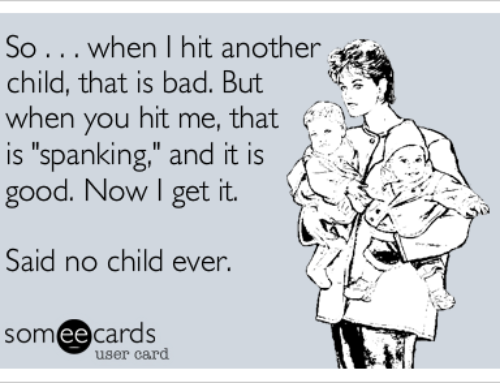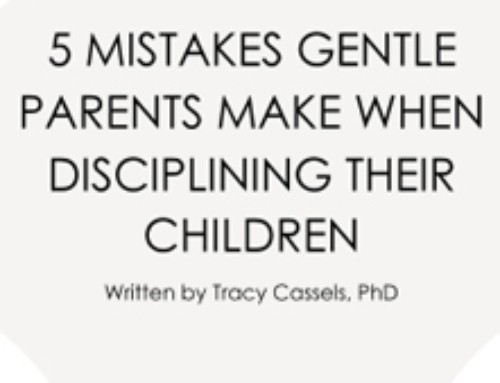
One of the messages that is making its way to the mainstream is the importance of loving your child unconditionally. You can hear it spoken about in several books on child development, discipline, and parenting more generally and for good reason: to thrive, our children need to know that they are loved by us no matter what. Without that, our children start to fear taking risks and exploring their world. They fear making mistakes. They hide and start to lie so they don’t fall from our graces. We risk losing trust, openness, security, and most importantly, attachment.
I have read many of the books and I too have known the crucial role of unconditional love in parenting. Most of us know it simply because we never had it. We were punished for mistakes and so we started lying and hiding things. We saw the disappointment and love withdrawal when we did something wrong so we felt shame and internalized it, sometimes seeking outlets that weren’t so healthy to try and push that shame down further or ignore its presence. We don’t want this for our children so we read these books and we’re given some ways to help us – don’t praise, don’t punish, don’t take love away, and so on – and yet, many times we still aren’t quite sure how to make this unconditional love work. So much of the advice out there is based on what we shouldn’t do and yet we don’t quite know what to replace that with.
I hope I can help here. The goal of this article is to share with you some of the things you can practice to help you work towards unconditional love that isn’t permissive parenting and doesn’t leave you confused about what you can do in trying situations.
When Things Are Good
Let’s start with the good times. I know most of us think of conditional parenting being related solely to discipline and punishment, but actually in good times many of us can end up instilling these same ideas, just in a more subtle way. The key problem here comes with praise. You may have read some of the great work out there on praise – Alfie Kohn’s Punished by Rewards and Carol Dweck’s Mindset, for example – and know that you aren’t supposed to praise or only praise process, but how do you get to this?
Let’s start with understanding the problem with praise. The first issue is that it is often based on things that the child has no control over, like beauty and intelligence (see Carol Dweck’s work). These things fall under what we would call a “fixed” mindset because the child doesn’t see that he or she has any control over them. Either you’re smart or you’re not. And oddly, just upping the praise on smart doesn’t work because kids fear being seen as “not smart” so they stop challenging themselves and always going for the easy way out. Not the lessons we want them to learn.
The second issue is that praise is almost always still conditional. We don’t praise our children for just anything and so they receive more praise on certain occasions than others. We also tend to heap praise on things that are about success, not just effort – winning the race, getting A’s, finishing a task successfully – and this can make that praise feel more like it’s conditional. This can also make the absence of praise seem like the punishment or love withdrawal.
The question now is how we cope with this. You can never praise and focus instead on comments that reflect back to the child their accomplishments – “You did it!” “How do you feel about that?” – which are commonly recommended, but many parents lash out against. In a culture that has been awash with praise, it’s really hard to do that. We don’t want to just have our child reflect on their own accomplishments, but we want them to feel our love for them as well which is what we often try to do with praise.
This brings me to my favourite sentence in place of overt praise and in place of pure reflection:
“I love watching you…”
I wish I could remember the source and looking it up seems to lead to morbid lyrics from a seemingly death-metal band. I did not get it from there. But I love using this one because it (a) doesn’t praise an outcome or a trait and thus can be used whenever our child takes part in something, (b) doesn’t just reflect back but tells our child we love them and what they are doing, and (c) doesn’t make our love conditional upon any particular outcome. You can say this to a child who just lost a hockey game or who fell and couldn’t finish a race or who painting the world’s worst painting. And you can’t use it for a child’s looks or intelligence because it simply doesn’t make sense.
When Things Are Bad
This is the hard time. The time when our kids have done something they shouldn’t, possibly triggering intense anger in use because of our own histories and we are ready to lash out at them. Yes, “lash out” because that’s what punishment, yelling, love withdrawal, and so on are forms of. Many of us know that punishment isn’t right. We know our kids need connection first. The problem is getting from point A (our reactions) to point B (connection, not punishment).
Step 1: Stop and breathe. Seriously. There is nothing your child has done that requires you to respond immediately once they are safe (if safety was ever an issue). Take 5 or 10 deep breathes and even close your eyes if you need to. Your child may ask what’s happening and feel free to use your hand to motion “one minute” and you can explain later that you were calming yourself down because you were feeling upset (a wonderful way to model such behavior for our kids too).
Step 2: Look at your child and think of something wonderful they’ve done. Yes, they have just don’t something “bad” or triggering, but that is not the whole of who they are and if we want to respond to them instead of react to what they did, we need to have the whole of them in mind. Don’t speak until you’ve had this in mind and can feel the shift of your emotions from anger to something more calm.
Step 3: Say “I love you” and mean it. This is why the wonderful thought is needed because as much as we know we love our kids at all times, when we’re angry and we say it, they feel the difference. But we want our kids to know at all times that we love them and this is perhaps even more important when they have done something we want to correct. Our love is not conditional upon them improving. Our love is going to help them improve.
Step 4: Hug them. Physical touch goes a long way and it can calm our children’s nerves as they probably know by this stage that they have done something you aren’t too thrilled with. This anxiety can inhibit their ability to listen to what we are saying for fear of what is coming next. Loving them first allows them to calm and listen.
Step 5: Talk (calmly) about what happened. I don’t care if your child is 2 or 12, you can talk to them about what happened and what you didn’t like. Some people have suggested a child that’s too young wouldn’t get anything from this and needs to be corrected via harsher means. No. It’s even more important for a young child who can’t comprehend to not face harsh punishment because that will be all that is internalized. If a child can’t understand a discussion of what was wrong, a child will not understand the purpose of punishment except as a means of love withdrawal.
Step 6: Talk about future options. You can’t just say “no” and expect your child to have it all figured out (kinda like the point of this article). Instead you need to help identify what led to the behaviours and then how to fix it in the future all the while knowing your kid isn’t suddenly going to be perfect at it (like you). But if your child is calm and knows you support him or her, this change will be easier.
I will say here and now that this is freaking hard. I’m not perfect at it, but I keep practicing these steps knowing that they do get easier. Some things that were triggering before have now faded to the stage where I can respond appropriately without needing these steps, but some things still trigger in ways that I am still exploring. And of course, some days and times we’re just more triggered than others so the same thing can be easy to cope with one day but not another. Being mindful of this and focusing on the everyday steps below can help.
But now what if you failed (yes, it’s a word we need to own again because failure is a part of life, not something to be ashamed of)? Apologize. Honestly and with all your heart, apologize to your child. Don’t try to excuse what you did, but be clear that you are working hard to change and you will continue to work hard to change. Don’t ask if they forgive you, but you can say, “I hope you’ll forgive me” and allow them to do so when they are ready.
Apologies from parent to child are essential and our kids need to know that we are not perfect either. Through our apologies, they can learn to both apologize and forgive, something that not all people are capable of doing because they were never given the opportunity to learn. Of course, an apology only means something if you really are actively trying to change. A child who only gets apologies followed by the same behaviours time and again will learn that the apology is meaningless and that is not the lesson you want your kids to internalize so please make sure that you are ready to forgive yourself and keep learning so that your apology is not lost.
Every Single Day
Most of us strive for the days where there’s nothing that’s gone horribly wrong and nothing has been outstanding either. How do we live unconditional love in these moments? It’s not often the bad or good that truly shape our kids, but the busy-ness in between that results in feelings of disconnect and just not knowing how much our parents love us. To combat this, there are a few things you can try to make a habit of to help live a life of unconditional love:
- Work on loving yourself. It sounds all hokey, but it’s true – it is really hard to love unconditionally if you don’t feel love for yourself. The main reason for this is that we are triggered by the things that we don’t like about ourselves that we will inherently see in our kids and this can lead to those negative moments above. A daily meditation on self-love, therapy, or just practicing self-affirmations each day can help you in this process.
- Set aside time to talk about good times with each other or love about each other. We do this at dinner. We make a point to talk about times we enjoyed with each other that day (even, or especially, if they were seemingly benign) or things we saw someone in the family do that we loved. Our kids feel love when they hear we loved playing cars with them or reading a book together. These moments can then become even more special as they realize we love this time with them.
- Set aside time each day. Ten minutes of individual one-on-one time a day is all that’s really needed, but if our kids see us make a point of spending time with them and making it clear we want to do this each day, they feel loved. This time is never to be used as collateral on anything and should happen no matter how hard a given day was.
- End the day with love. Depending on the age of your child this may be nursing to sleep, cuddling to sleep, holding hands, staying in the room while your child falls asleep, or just a hug and kiss goodnight. But make a point of doing this (or a valid substitute like a call if away) so that your child goes to sleep with the knowledge that they are loved.
Sometimes it can feel like there’s too much to change so pick one and start there. Luckily none of these are really that time consuming and often just require a transition period of getting used to what you’re doing. Make notes to remind yourself and things should be easier, but this is probably something that will be a work in progress for a while and that’s 100% okay. We’re all works in progress and learning to enjoy the ride is just another way to work towards unconditional love.






what a great post! people do struggle with unconditional love, and how to express or show it. largely because it is something that quite a few (perhaps most) people did not experience themselves… and they struggle with balancing between permissiveness and authoritarianism. there are some good guidelines and suggestions in this, and i was happy to see the part about apologising as needed. lots of parents have questioned me on that; they think that apologising to kids undercuts one’s ability to parent effectively, that it means you have no “authority”. i have always thought that it was a great example to set.
I have heard the same and can’t fathom that. I mean, how will our children learn to apologize if we never model it? We don’t undercut our authority but actually build it up by showing them how we take responsibility for our actions. Its so much easier to dismiss people who don’t ever own up to their mistakes and ignore them completely. When people acknowledge and apologize when they err, it’s much easier to follow them and trust them.
Spending time (10-15 minutes) one on one with a child, without phone calls, other conversations etc is absolutely invaluable and has been a part of a major 50 year study. I would hope most people can carve out 15 minutes for their weeny beloveds. Well worth the effort and results comes quickly..
Hi Jen,
would you mind sharing the title of the study you mentioned? Thanks in advance!
This is wonderful thank you! Thinking the “I love watching you…” might come from Rachel May Stafford? https://www.handsfreemama.com/2012/04/16/six-words-you-should-say-today/
Oops Rachel Macy Stafford, rather!
Thank you! I think that may be it 🙂
Another one of those gems you wrote, Tracy! Point 5 is my absolute favorite. Of course we all struggle with unconditional love, unless we were raised by people with no need of authority (not my case… ;)). Our models are so deeply rooted, it takes not only awareness, but also courage to change our patterns. But every day counts! Every day we take a small step towards becoming lighter and leaving that old baggage behind. This post of yours helps A LOT to know why we want to do this.
Thanks again!!
Still far behind on my work on the course btw., lots of work to be done, will be in contact with you once I finished :))
Cheers and keep on the great work!
Tamara
Thank you for this article. I am really struggling with this right now. I have two children who are 18 months and another who just turned 3. It is tantrum city. I feel like they are running me and I am having a hard time setting boundaries. I struggle to find the energy to come up with ways to convince them to do anything… from brushing teeth, to changing diapers, getting dressed… every single thing. I try to let go everything I possibly can, but then I often end up trying to force them to put on a coat or something I would deem important. Then I berate myself. But what I am really struggling with is my son’s violence towards his sister… I just don’t know how to keep him from hurting her… I try so hard to remain calm but I lost it today when he was hitting her in the face, I yelled, yanked him off of her by the arm, put him in his room and slammed the door – then felt like an absolute toddler myself. I feel like i’m at the end of my rope.
I’m happy to help individually. There are other articles on tantrums and items here, but I know that sometimes isn’t enough (though certainly start there – under Articles in Social Emotional Development or Discipline). The ‘Parenting Help’ section talks about the individual help I do with families.
Great article! It is difficult to reinvent the wheel at parenting, so to speak, but it is so worth it. I don’t want my kids to think that I only love them for what they do but rather for who they are. I believe this may be where you first heard “I love watching you play.” I am so thankful for that article and, given that my children are athletes, I use that phrase a lot. (Although I use it when they’re doing things other than sports, like when the three year old is playing with his cars!) http://m.thepostgame.com/blog/more-family-fun/201202/what-makes-nightmare-sports-parent